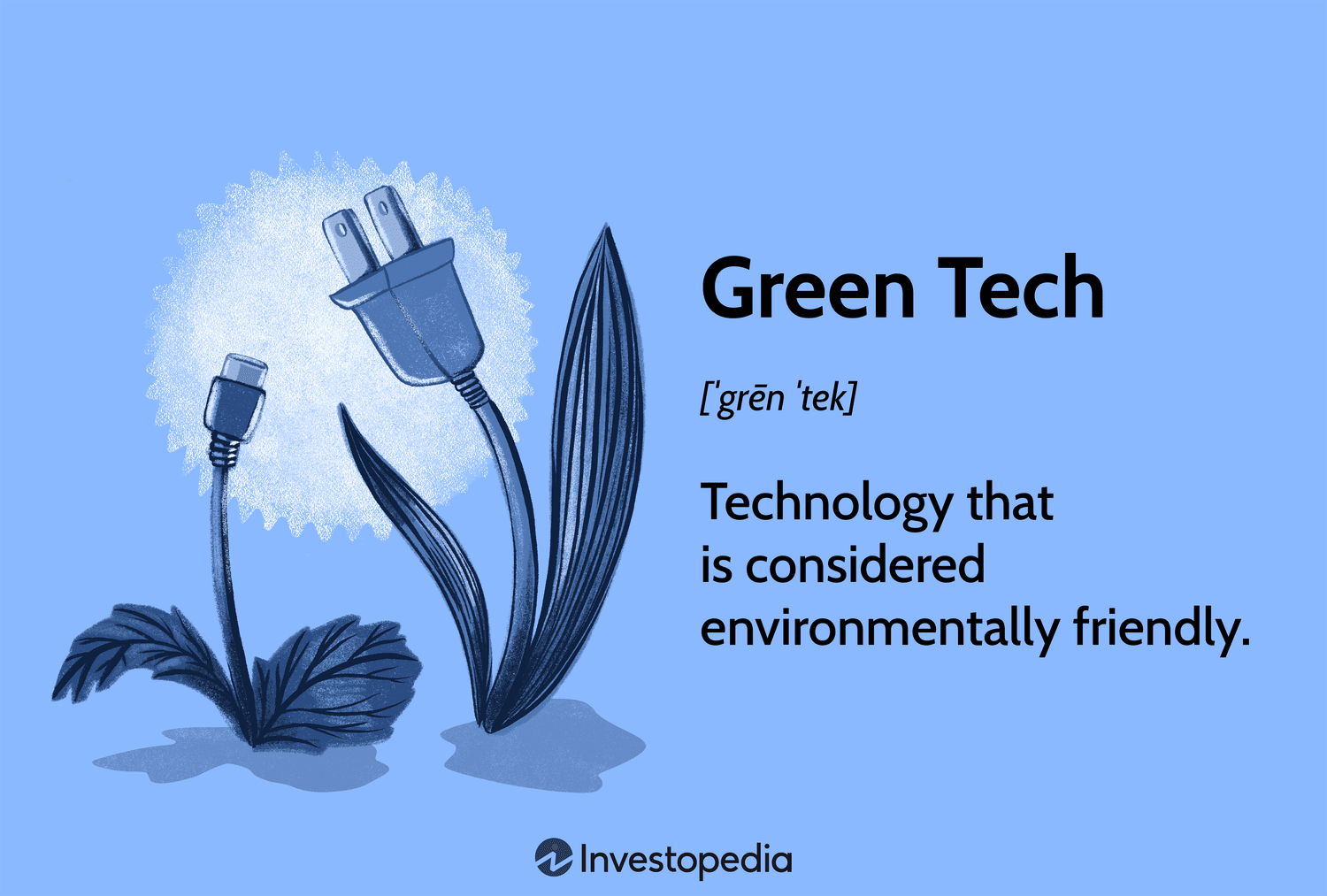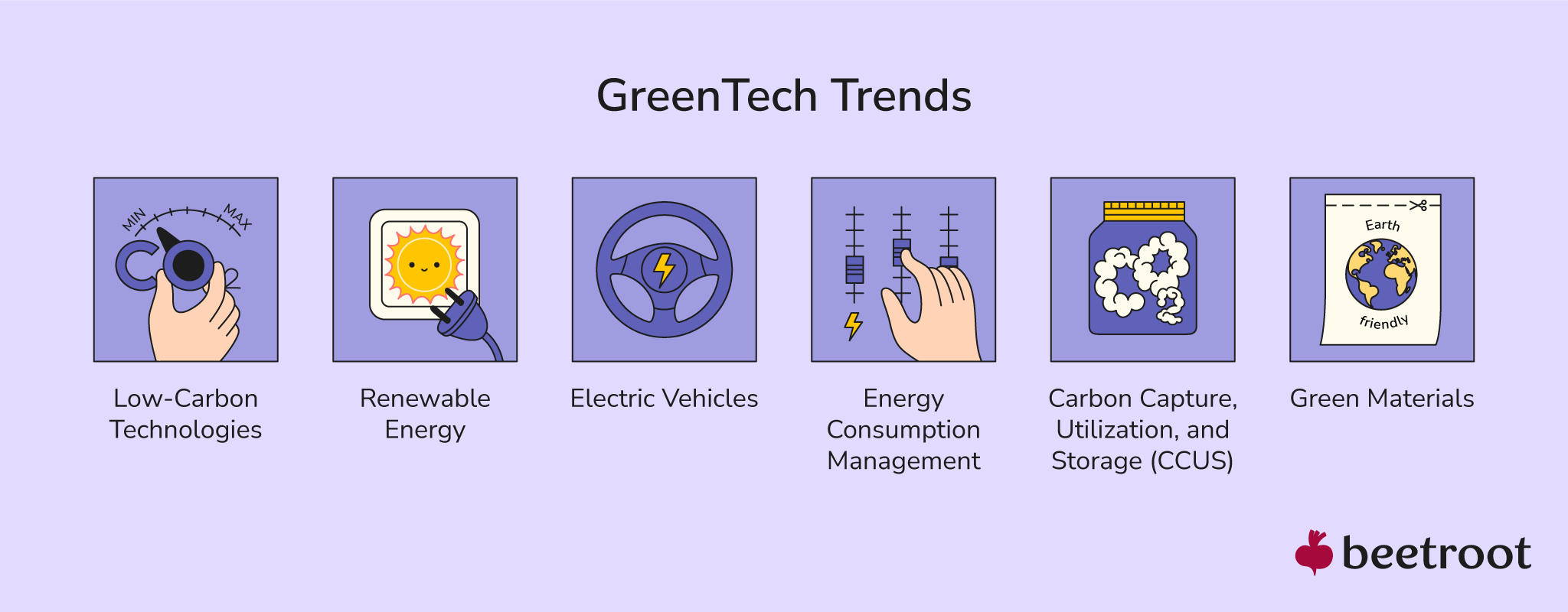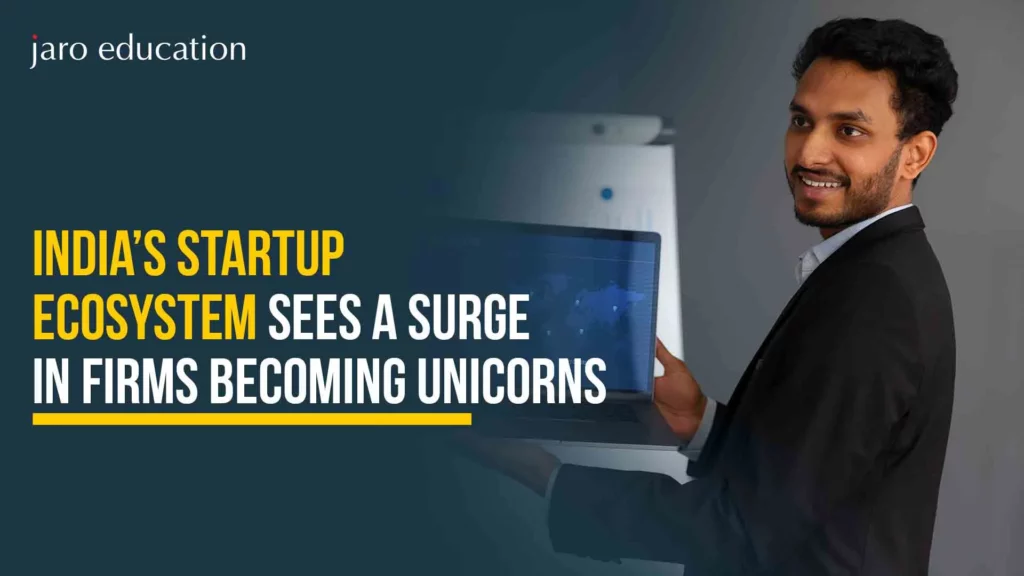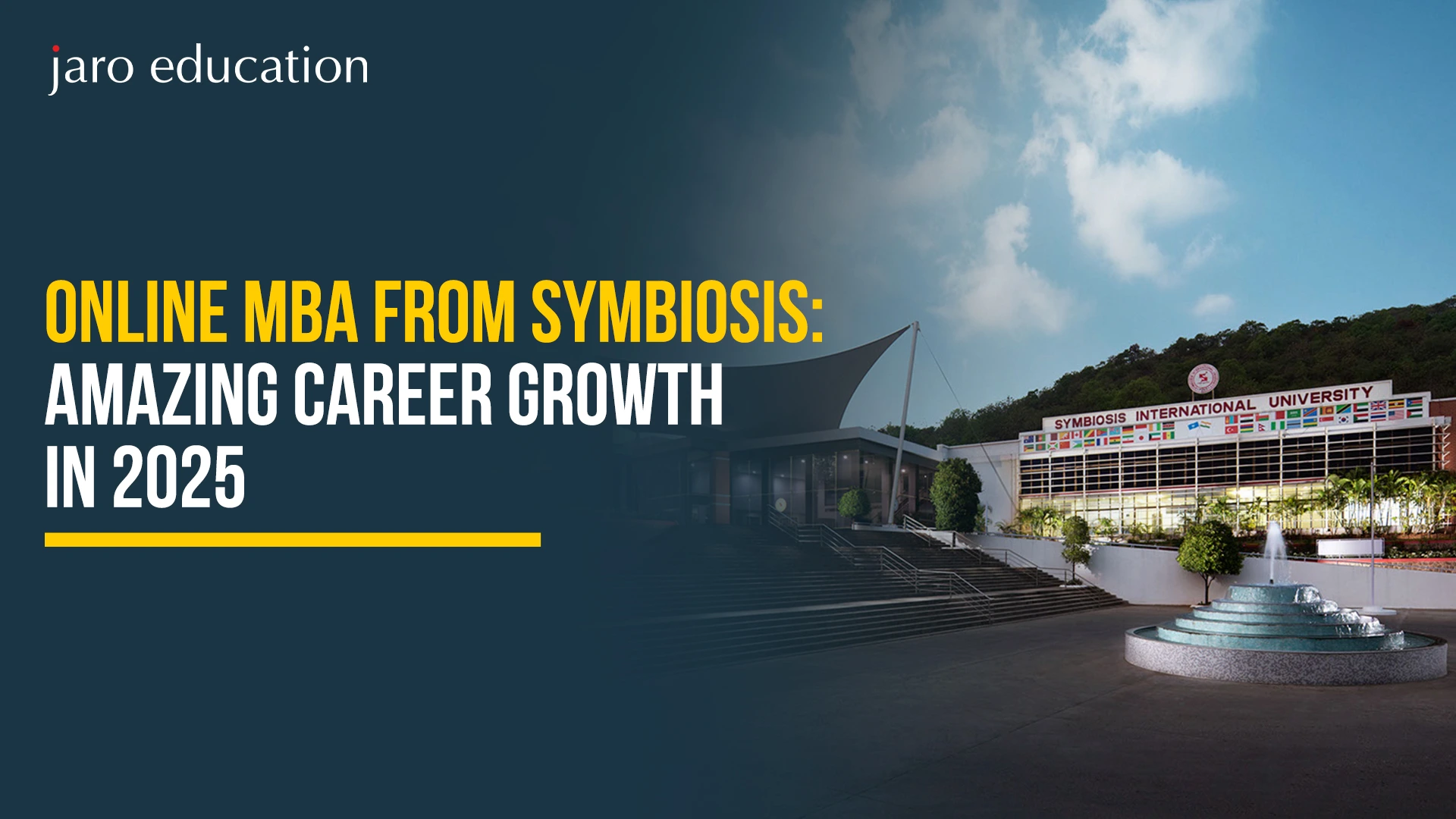MBA Focus on Green Tech Innovations: Building a Sustainable Future
Table of Contents

- jaro education
- 7, November 2024
- 6:00 pm
With the urgent global push toward sustainability, businesses worldwide are adopting green technologies and environmentally conscious practices. This shift is creating a demand for leaders who are not only adept in business but also knowledgeable in sustainable and green tech innovations. An MBA with a focus on Green Tech Innovations equips future leaders with the necessary skills to drive sustainable business solutions, balancing profitability with environmental responsibility.
For professionals aspiring to lead in this transformative field, an MBA program with such specializations provides essential knowledge and tools. Jaro Education also plays a crucial role in providing access to such innovative online MBA programs that integrate sustainable business practices and advanced technological learning.

*Investopedia
Why Green Tech Innovations Matter in Business
Green technology, or “cleantech,” involves environmentally friendly solutions aimed at reducing pollution, conserving resources, and promoting sustainability. As the global business landscape transforms to meet environmental standards, companies that integrate clean technologies can gain a competitive edge by:
- Lowering operational costs: Through energy-efficient practices and sustainable supply chains.
- Meeting regulatory requirements: By adhering to stricter environmental laws and standards.
- Attracting eco-conscious consumers: Building brand loyalty with environmentally aware customers.
- Enhancing investor interest: Sustainability-focused investors prefer companies with strong environmental practices.
Key Areas of Green Tech Innovations in Business
| Area of Innovation | Description |
|---|---|
| Renewable Energy | Solar, wind, and bioenergy sources that reduce dependency on fossil fuels. |
| Waste Management | Systems for recycling, composting, and reducing waste production. |
| Green Manufacturing | Eco-friendly production methods that lower carbon emissions. |
| Sustainable Supply Chains | Efficient logistics and eco-friendly materials to minimize impact. |
| Carbon Capture | Technology that captures and stores CO₂ to reduce atmospheric levels. |
| Green Building Design | Energy-efficient building structures that reduce resource consumption. |
These areas of clean tech can drastically change how businesses operate and interact with their environments. Professionals with expertise in these fields can drive both sustainability and profitability.
MBA Programs and Green Tech Focus: Why It Matters
As environmental considerations continue to drive market changes, MBA programs have started incorporating clean tech innovation and sustainability modules. An MBA focused on Green Tech Innovations provides a multidisciplinary approach, merging business acumen with sustainable science and technology.
Key skills taught in these programs include:
- Sustainable Business Strategy: Creating business plans that consider long-term environmental impact.
- Corporate Social Responsibility (CSR): Designing CSR initiatives that align with sustainable goals.
- Green Marketing: Developing campaigns that highlight sustainable products and practices.
- Environmental Finance: Understanding investments in green projects, carbon credits, and sustainable financing.
- Innovation and Entrepreneurship in Sustainability: Leading innovation with eco-friendly products and services.
Core Components of an Online MBA in Green Tech Innovations
Programs like those offered through SSODL focus on building a curriculum that balances theoretical learning with practical application. Jaro Education helps make top online MBAs that allow students to study environmental and technological strategies more accessible through their online platform, making sustainability a central business focus.
Typical MBA Curriculum Components for Green Tech Innovations
| Component | Description |
|---|---|
| Environmental Economics | Examines the economic impact of environmental policies and sustainable practices. |
| Green Technology & Innovation | Focuses on the latest in green technology and its application to various industries. |
| Corporate Sustainability | Guides students in creating business practices that align with environmental objectives |
| Sustainable Supply Chain Management | Teaches eco-friendly sourcing, production, and logistics management. |
| Environmental Policy & Regulation | Provides insights into global environmental standards and compliance strategies. |
Such programs prepare students to address the unique challenges of running green initiatives within corporate structures, allowing for sustainable business models that prioritize environmental stewardship.
Career Opportunities in Green Tech for MBA Graduates
-
- Sustainability Manager: Oversees a company’s environmental programs and ensures compliance with sustainability goals.
- Environmental Consultant: Advises companies on how to improve their environmental impact and adopt clean tech.
- Renewable Energy Project Manager: Manages renewable energy projects, such as solar installations or wind farms.
- Corporate Social Responsibility (CSR) Specialist: Develops and implements CSR initiatives within a company.
- Green Product Development Manager: Focuses on designing and bringing to market environmentally friendly products.
- Carbon Analyst: Tracks and reports on a company’s carbon footprint, and develops strategies for reduction.
Case Studies of Green Tech in Action
-
- Tesla, Inc.: Tesla revolutionized the automobile industry with electric vehicles and renewable energy solutions, setting a benchmark for a green tech company and green tech solutions.
- Patagonia: Known for its eco-conscious policies, Patagonia’s business model includes sustainable supply chains, fair labor practices, and environmental activism.
- Unilever: Unilever, as a green tech company focused on green tech solutions has committed to sustainability through its sourcing and production methods, aiming to reduce its carbon footprint significantly by 2030.
Future Trends in Green Tech for MBA Graduates
The clean tech sector is evolving, and several trends are shaping the future:
-
- Decarbonization: Reducing carbon emissions is a top priority, with innovations in carbon capture, renewable energy, and sustainable fuels leading the charge.
- Circular Economy: This model emphasizes resource reuse, focusing on products designed to have longer life cycles or that can be easily recycled.
- Smart Grid Technology: Renewable energy sources are integrated with smart grids, enhancing efficiency and reducing wastage in energy distribution.
- Sustainable Agriculture: New technologies are optimizing farming practices to be more sustainable, reducing water and pesticide usage.

*beetroot
Conclusion
As environmental awareness becomes more central to global business strategies, an MBA focused on Green Tech Innovations is an excellent choice for aspiring leaders. This specialization allows students to learn both core business principles and cutting-edge green technologies, providing them with a unique skill set to address the challenges of sustainable business.
Programs like SSODL’s Online MBA, accessible through Jaro Education, enable students to gain expertise with the convenience of flexible learning. With Jaro Education’s support, professionals can enroll in these forward-thinking MBA programs and gain the insights needed to drive eco-conscious change within their industries.
The future of business is green, and those who invest in sustainability-focused education today will be well-positioned to lead tomorrow’s sustainable organizations.
Frequently Asked Questions
“Greentech,” or green technology, refers to innovative technology that aims to reduce environmental impacts, conserve natural resources, and promote sustainability. Greentech encompasses a wide range of environmentally friendly solutions, including renewable energy, waste management, sustainable agriculture, and energy-efficient technologies. The primary goal of greentech is to address global challenges like climate change, pollution, and resource scarcity by providing eco-friendly alternatives to traditional methods and technologies.
- Green tech solutions are designed to minimize carbon footprints, enhance energy efficiency, and support the transition to a more sustainable economy. It includes fields such as solar and wind energy, electric vehicles, recycling, green building, and water purification.
A green tech company develops, manufactures, or implements technologies and practices focused on reducing environmental impact and supporting sustainable practices. These companies may work in various areas, including:
-
- Renewable Energy: Developing solar, wind, hydro, or geothermal energy solutions to reduce reliance on fossil fuels.
- Energy Efficiency: Creating products or services that help reduce energy consumption, like smart thermostats, LED lighting, and energy-efficient appliances.
- Waste Management and Recycling: Offering innovative recycling solutions, waste-to-energy technologies, and composting systems.
- Sustainable Agriculture: Developing eco-friendly farming practices, organic fertilizers, and technology to reduce pesticide and water usage.
- Green Building and Construction: Promoting eco-friendly construction materials and practices that lower energy consumption and improve indoor air quality.
- Water Conservation and Purification: Providing solutions to conserve and purify water, like desalination plants, efficient irrigation systems, and water recycling technologies.
Overall, greentech companies aim to drive sustainability through technology, helping industries and individuals minimize their environmental impact.
In India, green technology includes a range of innovations aimed at achieving sustainable development, reducing carbon emissions, and addressing environmental challenges. India has focused on expanding green technology in areas like renewable energy, sustainable agriculture, waste management, and electric vehicles. Key aspects of green technology in India include:
-
- Renewable Energy: India is one of the world’s leaders in solar energy production and has significant investments in wind energy. Government initiatives, such as the National Solar Mission, aim to increase solar capacity substantially.
- Electric Mobility: The push for electric vehicles (EVs) is strong in India, with subsidies and incentives to promote EV adoption and reduce pollution.
- Sustainable Agriculture: Innovations in organic farming, drip irrigation, and sustainable practices help conserve water and reduce chemical usage.
- Green Buildings: India has an increasing number of green-certified buildings that use sustainable materials, energy-efficient lighting, and water recycling systems.
- Smart Cities: The Smart Cities Mission promotes the use of green tech solutions in urban development to improve resource efficiency and lower carbon emissions.
India’s approach to green technology aligns with its commitments under the Paris Agreement, focusing on sustainable growth and reducing its carbon footprint.








